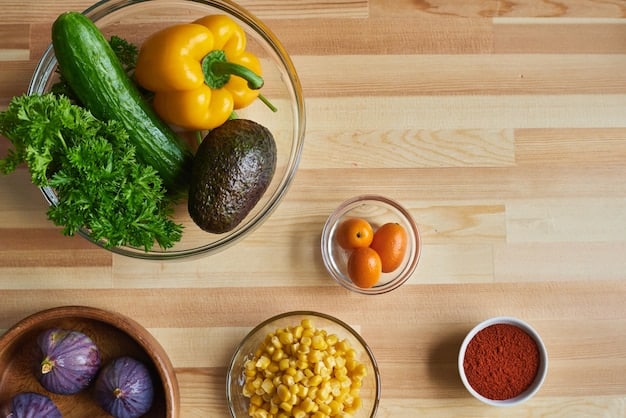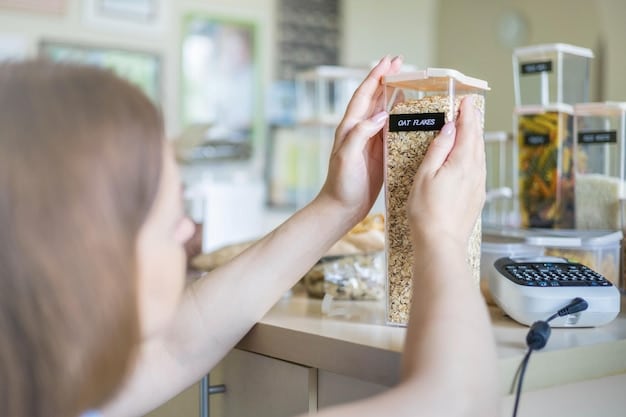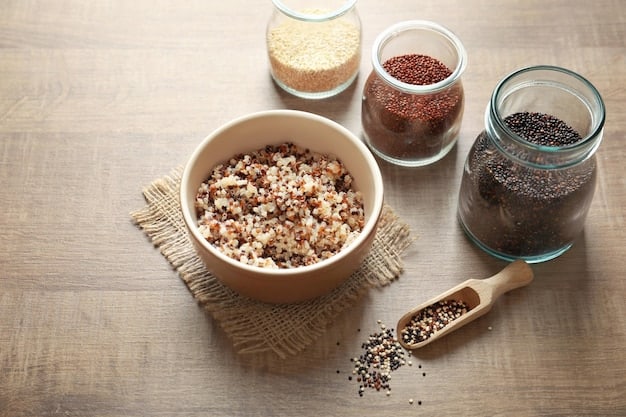7 Foods That Are Secretly Sabotaging Your Weight Loss Goals

7 Foods That Are Secretly Sabotaging Your Weight Loss Goals might be the reason why your weight loss journey is not as effective as you want. These seemingly harmless foods can increase your calorie intake and hinder your progress.
Embarking on a weight loss journey can feel like navigating a labyrinth. Despite your best efforts, are you finding it difficult to shed those extra pounds? The truth might lie in your diet. Certain foods, often perceived as healthy or harmless, could be secretly hindering your progress. These foods, packed with hidden calories, sugars, or unhealthy fats, can sabotage your weight loss goals if you aren’t aware of them. This article will uncover 7 Foods That Are Secretly Sabotaging Your Weight Loss Goals, providing you with the knowledge to make informed dietary choices and achieve the results you’re striving for.
Unveiling 7 Foods That Are Secretly Sabotaging Your Weight Loss Goals
Many individuals diligently adhere to their workout routines and calorie counting, only to find their weight loss efforts plateauing. This frustrating phenomenon often stems from the unconscious consumption of foods that appear benign but are, in reality, loaded with hidden pitfalls. Let’s expose those sneaky culprits and delve into why they might be thwarting your aspirations.
The Misleading World of “Healthy” Snacks
Navigating the snack aisle can be a minefield. Products labeled as “healthy” or “natural” often mask high sugar content, unhealthy fats, and excessive calories. Understanding these hidden dangers is crucial for effective weight management.
- Trail Mix Overload: While nuts and seeds are healthy, commercial trail mixes often contain chocolate candies, sugary dried fruits, and added oils. A small handful can quickly turn into a calorie bomb.
- Granola Bar Deception: Many granola bars are packed with added sugars, syrups, and unhealthy fats to improve taste and texture. These ingredients negate the potential benefits of oats and nuts.
- Dried Fruit Dilemma: Dried fruit is a concentrated source of natural sugars and calories. The dehydration process removes water, making it easy to overeat and consume excessive amounts of sugar.
Always read nutritional labels carefully. Pay attention to serving sizes, sugar content, and the types of fats used. Opt for whole, unprocessed snacks whenever possible to minimize hidden calories and unhealthy additives.

By being mindful of your snacking choices, you can avoid these common pitfalls and ensure that your weight loss efforts are not undermined by seemingly harmless snacks.
Be wary of Fruit Juices
Fruit juices are often perceived as being a healthy alternative to sugary sodas. However, the reality is that fruit juices can be high in sugar and calories that will quickly add up without you even realizing. Therefore, it’s important to be wary of fruit juices.
Fruit juices contain the natural sugars found in fruit but lack the fiber that helps regulate blood sugar levels and promote fullness. The lack of fiber and the concentrated sugar content mean that you can easily consume excess calories. Furthermore, the calories in fruit juices are regarded as being “empty calories” as they have very little to no nutritional value.
Ultimately, it is better to eat whole fruits that contain fiber, vitamins, and minerals. If you want to drink fruit juice, then it is best to limit the amount that you consume.
Refined Carbohydrates Can Hinder Weight Loss
Foods like white bread, pasta, and pastries are often dietary staples, but their impact on weight loss can be detrimental. These refined carbohydrates are quickly digested, leading to rapid spikes in blood sugar and insulin levels. This can result in increased hunger, cravings, and fat storage. Instead, try to opt for grains that are not refined.
Understanding the Glycemic Index
The Glycemic Index (GI) measures how quickly a food raises blood sugar levels. Foods with a high GI, such as refined carbohydrates, cause rapid spikes, while low-GI foods are digested more slowly, providing a steady release of energy.
- White Bread Woes: White bread lacks the fiber and nutrients found in whole grains. It’s quickly digested and can lead to energy crashes and increased cravings.
- Pasta Predicament: White pasta is similar to white bread in its effect on blood sugar levels. Portion control is crucial when consuming pasta.
- Pastry Problems: Pastries are often loaded with refined flour, sugar, and unhealthy fats. They offer little nutritional value and can significantly contribute to weight gain.
Choosing whole grains over refined carbohydrates is essential for weight management. Whole grains are rich in fiber, which promotes fullness, regulates blood sugar levels, and supports healthy digestion. Here are some examples of healthy grains:
- Brown Rice
- Oats
- Quinoa

Ultimately, it’s important to remember that refined carbs should be eaten in moderation.
The Truth About Flavored Yogurts
Yogurt can be a healthy snack. However, flavored yogurts can be secretly sabotaging your weight loss goals. To make flavored yogurts taste more appealing, manufacturers often add sugar to them, which can lead to quick calorie gains. This makes yogurt a food that are secretly sabotaging weight loss goals.
Flavored yogurts end up having very little nutritional value. All that you end up doing by eating flavored yogurts is you end up increasing the amount of calories you eat in a day. If you want to eat some yogurts, then it is best to go with plain yogurts. You can add healthy things to plain yogurt such as fruits to make it tastier and increase its nutritional value.
Condiments Can Derail Your Weight Loss Plans
Condiments are often overlooked when people are trying to lose weight, but they can drastically increase the amount of calories you eat. Ketchup, mayonnaise, and salad dressings are known to have added sugars, salt and unhealthy fats. These should be avoided in order to progress in your weight loss journey. The key is moderation when you do eat these foods.
Consider choosing healthier alternatives like mustard, vinegar, or low-fat dressings. These options provide flavor without excessive calories, sodium, and unhealthy fats. To avoid eating lots of calories through condiments, it is best to read the nutritional value of each of the condiments you use, and ensure that you are not exceeding the recommended serving size of each condiment.
Alcohol Consumption Can Affect Your Weight Loss Goals
Alcoholic beverages can negatively impact your weight loss efforts in several ways. Alcohol is high in calories and it does not provide any nutritional value, and can be a major source of empty calories. It also affects your metabolism, and causes impaired decision-making thereby indirectly contributing to weight gain.
Alcohol can affect your metabolism by temporarily slowing down the fat-burning process because the body prioritizes processing alcohol over other nutrients. This can then lead to more fat storage over time. This can then cause weight gain. Furthermore, drinking too much alcohol will cause an impaired decision, and will likely cause you to order unhealthy food while you are under the influence.
Furthermore, alcohol can have diuretic effects, leading to dehydration. The body then stores water because it believes that you are not drinking enough water, causing you to weigh more than you usually weigh. It is best to consume alcohol in moderation to ensure that you do not hinder the progress of your weight loss journey.
| Key Point | Brief Description |
|---|---|
| 🍬 Sugary Snacks | Hidden sugars in “healthy” snacks sabotage weight loss efforts. |
| 🥤 Fruit Juices | High in sugar, lacking fiber, leading to calorie overload. |
| 🍞 Refined Carbs | Cause blood sugar spikes, increasing hunger and cravings. |
| 🍨 Flavored Yogurts | Added sugars reduce nutritional value and increase calorie intake. |
Frequently Asked Questions
Yes, 7 Foods That Are Secretly Sabotaging Your Weight Loss Goals are something that you need to consider. While individually they may not seem like much, they can certainly add up in calories quickly.
It is best to limit yourself to about one cup of fruit juice a day, and ensure that you are not drinking too much. A better alternative is simply to eat a fruit so you can get fiber.
Some good refined carbohydrate alternatives include quinoa, oatmeal, and brown rice. These foods still provide some form of sustenance, while also preventing you from consuming too many calories.
Condiments have lots of sugar, salt and fat. By limiting your condiments, you can start to avoid eating too much amount of calories, and work towards a healthier lifestyle.
The impact of 7 Foods That Are Secretly Sabotaging Your Weight Loss Goals can derail your weight loss and health journey. They may contribute to an increase in caloric consumption without you even realizing.
Conclusion
Becoming aware of 7 Foods That Are Secretly Sabotaging Your Weight Loss Goals is critical to starting your weight loss journey and maintaining a healthy lifestyle. By reading nutritional labels, practicing moderation, and choosing food that are more nutritious, you will be well on your way to reaching your fitness goals.





